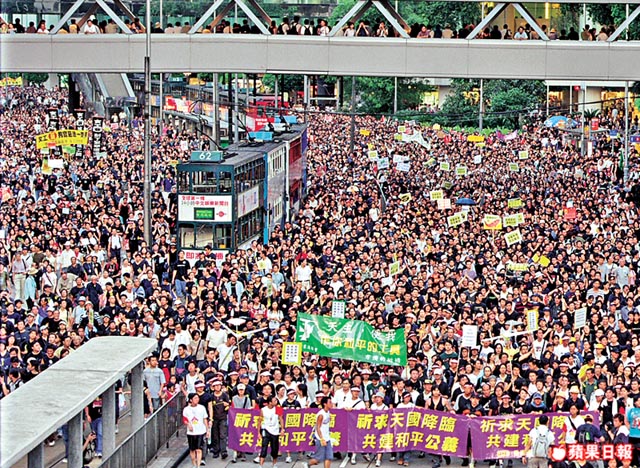The “majority” of people who have shared their opinions on Hong Kong’s proposed new security law with the government have expressed their support for it, the city’s leader has said.

Addressing reporters during a weekly press conference on Tuesday, Chief Executive John Lee said that most of the feedback the government had received since the public consultation period for the enactment of legislation under Article 23 began on January 30 had been supportive.
“The majority of [people who have given their opinions] support Article 23 enactment,” Lee said.
“The general opinion gives me the impression that [the public] are in support of the overall goal of enacting Article 23 to ensure that we protect ourselves when people want to cause damage to us,” he continued.
Article 23 of the Basic Law stipulates that the government shall enact laws on its own to safeguard national security. It is separate from the Beijing-imposed security law, enacted in 2020.
Lee added that authorities would report the results of the consultation period to the city’s legislature “in due course,” but did not indicate when the bill would be tabled.
“The general consensus is that if we can do it one day earlier, we should do it one day earlier, because the threat continues, and the threat has been mounting,” he said. Lee earlier vowed to complete the legislation for Article 23 within this year.
The last legislative attempt for Article 23 in 2003 was shelved after an estimated 500,000 residents took to the street in protest. Concerns raised at the time mainly centred around the perceived ambiguity of the legislation and its possible impact on the city’s freedoms and rule of law.

While business groups have backed the government’s proposal to enact new security legislation, rights NGO Amnesty International called it a “dangerous moment for human rights” in Hong Kong.
Thomas Gnocchi, head of the European Union Office to Hong Kong and Macau, on Monday said the office had conveyed “significant concerns” to the government regarding the proposed legislation, and that it was particularly concerned about the newly-introduced offence of “external interference,” according to local media.
The Hong Kong Journalists Association (HKJA), the city’s largest press group, also said on Monday that the “vague” legislative proposal had caused journalists working in the city to “feel in danger.”
The HKJA called for adding a public interest defence to protect journalists and other people from the offence of unlawful disclosure of state secrets.
The one-month consultation period will end on February 28. During the previous attempt to legislate Article 23 of the Basic Law, authorities offered a three-month consultation period which drew over 90,000 submissions.
Support HKFP | Policies & Ethics | Error/typo? | Contact Us | Newsletter | Transparency & Annual Report | Apps
Help safeguard press freedom & keep HKFP free for all readers by supporting our team

























